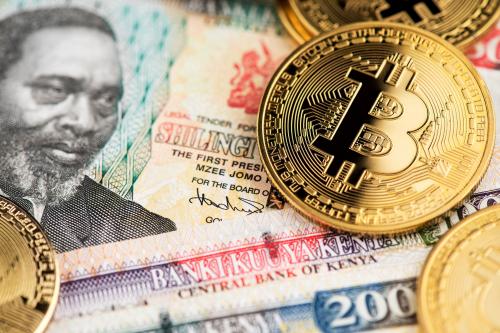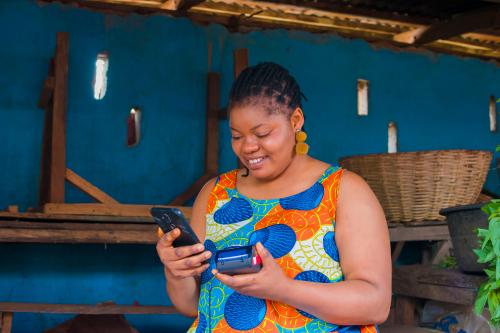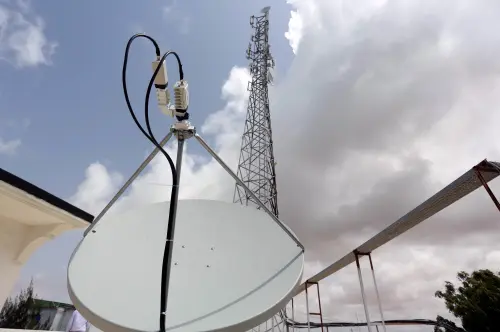Below is a governance viewpoint from the Foresight Africa 2022 report, which explores top priorities for the region in the coming year. Read the full chapter on technological innovations.
 Digital diplomacy refers to the broad use of technology, particularly the internet and other information and communication technologies (ICTs)-based innovations, in the conduct of diplomacy. With new technology providing access to instant information and interactive online communication, the use of these tools by diplomats and government officials is becoming widespread. In fact, the internet has three fundamental impacts on diplomatic relations: First, it multiplies and amplifies the number of voices and interests involved in international policymaking. Second, it accelerates and frees the dissemination of information—accurate or not—about any issue or event. Third, it enables traditional diplomatic services to be delivered faster and more cost effectively.
Digital diplomacy refers to the broad use of technology, particularly the internet and other information and communication technologies (ICTs)-based innovations, in the conduct of diplomacy. With new technology providing access to instant information and interactive online communication, the use of these tools by diplomats and government officials is becoming widespread. In fact, the internet has three fundamental impacts on diplomatic relations: First, it multiplies and amplifies the number of voices and interests involved in international policymaking. Second, it accelerates and frees the dissemination of information—accurate or not—about any issue or event. Third, it enables traditional diplomatic services to be delivered faster and more cost effectively.
The COVID-19 pandemic has further revealed the great extent to which the modern world depends on technology and digital tools. Like every other aspect of life, diplomacy also had to go “digital,” with many activities transferred online due to pandemic-related gathering restrictions. Zoom, Google Meet, and other such platforms became important platforms for global decision-making gatherings, diplomatic meetings, and conferences as travels became impossible or infeasible. In many ways, the pandemic’s disruptive element has helped unleash new forms of virtual decision-making processes.
Social media platforms … have proven to be powerful instruments for influencing the public, especially in terms of enhancing a country’s image, among many other uses.
During this disruptive time, African countries have embraced digital diplomacy through these virtual processes. For example, despite the pandemic, African governments, the African Union (AU), and non-governmental organizations have held several virtual peace and security conferences, bringing together thousands of African stakeholders. In May 2020, the AU successfully hosted a “Silencing the Guns” online conference, which was spread over three weeks. Participants attended both physically and virtually, contributing to the debate and making new connections. African leaders—e.g., AU Chairman President Cyril Ramaphosa of South Africa—have been holding online meetings with stakeholders since the beginning of the pandemic. These online discussions have not only reduced the costs of bringing together key stakeholders, they have also enabled faster decision making, as more participants, who may not have attended ordinarily for various reasons, are available for negotiations.
However, these successes do not necessarily imply that virtual meetings should replace the tradition of face-to-face interactions. Instead, they should be complementary. Physical meetings are important because negotiations often take place on the sidelines of international gatherings, through impromptu discussions between global leaders at tea or lunch breaks, or a chance encounter in the corridor or rest room and so on. Also, physical meetings provide an opportunity for participants to observe and interpret body language and emotions of the parties, which may help in decision making. Thus, hybrid format of physical interactions and online meetings seem to be the best approach for diplomatic engagements. Meetings should be held physically as they become more focused on decision making and high-level representation, such as issues that demand high level of secrecy, involve conflict situations, or complex negotiations.
At the same time, social media platforms—including Twitter, Facebook, WhatsApp, and Instagram—have proven to be powerful instruments for influencing the public, especially in terms of enhancing a country’s image, among many other uses. For example, many African leaders, ministries of foreign affairs (MFAs), and other related agencies operate social media accounts, especially Twitter and Facebook. Notably, Nigeria’s President Muhammadu Buhari is the most followed African leader with more than 5 million followers on Facebook, Instagram, and Twitter combined. He is followed by Ghana’s President Nana Akufo-Addo and Rwanda’s President Paul Kagame with more than 4 million followers on all three social networks combined. Kenya’s President Uhuru Kenyatta was the most followed African leader with more than 7 million followers on Facebook, Instagram, and Twitter combined until he deactivated his accounts in March 2019, which according to him was due to the constant insults and name-calling that flooded his timeline. Furthermore, at the height of the COVID-19 pandemic, social media platforms helped many MFAs and agencies to maintain ties with some of their country’s citizens abroad and to provide them with valuable consular assistance.
As a supplement to traditional diplomacy, African countries need to embrace the full potential of digital diplomacy in order to advance their foreign policy goals, extend international reach, and influence foreign audiences in the cyber space.
Digital diplomacy, however, faces a number of challenges in Africa, including poor ICT infrastructure (e.g., reliable and affordable internet and power). Top leaders have also shown distrust of the internet, with several African governments (e.g., Uganda, Tanzania, Zimbabwe, Togo, Burundi, Chad, Mali, and Guinea) controversially shutting down or restricting access to the internet and social media platforms. The Nigerian government also placed a ban on Twitter on June 4, 2021, two days after the company deleted a tweet by President Buhari that threatened to punish regional secessionists, which Twitter said violated its rules.
These obstacles hold Africa’s digital diplomacy back. In essence, as a supplement to traditional diplomacy, African countries need to embrace the full potential of digital diplomacy in order to advance their foreign policy goals, extend international reach, and influence foreign audiences in the cyber space. Importantly, African countries should leverage their position in the global diplomatic arena with the use of social media. By being active on the social media platforms, MFAs can accelerate the dissemination of accurate information and enable traditional diplomatic services to be delivered faster and more cost effectively. Moreover, they can amplify the voices and interests of their countries in the international community, thereby boosting the countries’ image and furthering their goals.





Commentary
Africa and the future of digital diplomacy
March 23, 2022